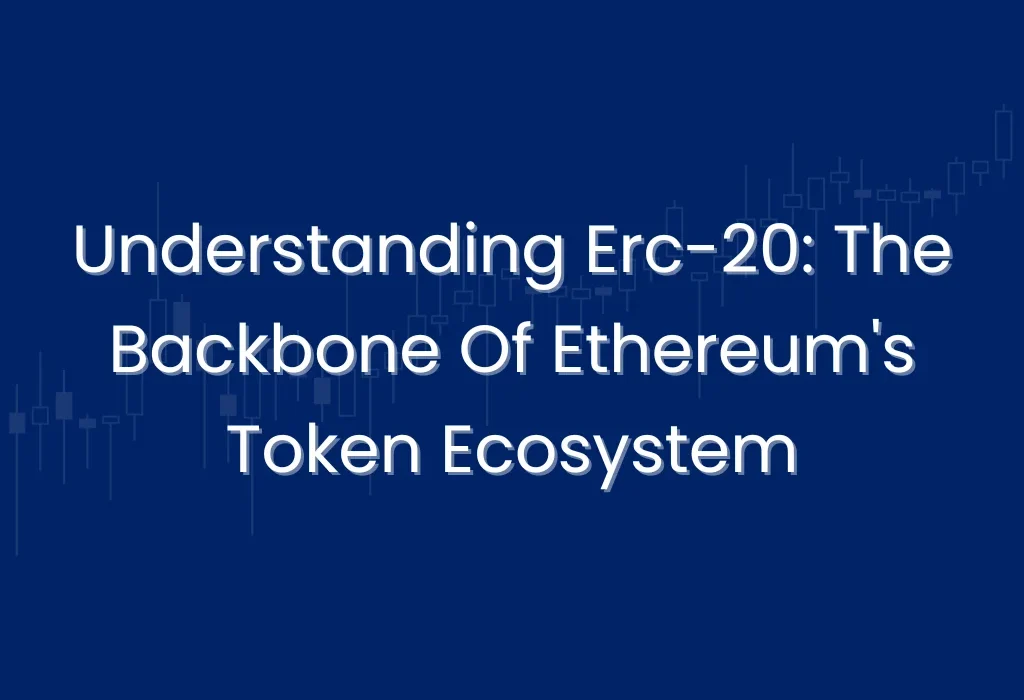At the forefront of blockchain innovation is ERC-20 (Ethereum Request for Comment 20), which stands out for its impactful introduction to the Eth blockchain and subsequent use as the standard for creating fungible tokens that foster decentralized applications and digital assets alike.
What Is ERC-20?
The Ethereum blockchain uses the ERC-20 technical standard for smart contract creation and issuance. Smart contracts created using this standard can represent anything from currencies and voting rights to stakes in companies or units of services – even thousands of tokens have already been launched using it since its introduction.
Why Is ERC-20 Important?
It was introduced as part of Eth to disrupt and alter the blockchain ecosystem for several reasons, including security, utility, and innovation.
Standardization:
Before it, everyone who created Ethereum-based tokens used their proprietary method for how these tokens should behave; this made communicating across tokens difficult. With ERC-20’s universal rules that all Eth tokens must abide by, developers are better able to predict how new ones will fit within the larger ecosystem.
Simplicity and Efficiency:
The Ethereum standard simplifies token creation, drastically decreasing complexity and potential errors associated with token contract deployment.
Interoperability:
Those tokens allow tokens and decentralized applications (DApps) built using the Ethereum blockchain to interact quickly, creating an interconnected ecosystem of digital currency assets and services on this blockchain.
Adoption:
It has quickly become the go-to standard for Initial Coin Offerings (ICOs), with most token sales conducted on ETH adhering to this standard.
Token Creation:
The Eth blockchain’s token creation and launch procedures have been made simpler. Due to how simple it is to tokenize, more and more projects are using standards for their token offerings, which include security, governance, and utility tokens.
First Coin Offerings (ICOs):
The ERC-20 standard was largely utilized by ICOs, which became quite popular in the blockchain community. Due to the smooth integration of smart contracts, exchanges, and wallets made possible by these standards, projects all around the world now have easier access to funding.
Interoperability:
To ensure interoperability across various tokens, ERC-20 tokens follow a common set of rules. By making it easier to integrate these tokens into portfolio trackers, decentralized exchanges (DEXs), and other DApps, this standardization has promoted an ecosystem that is more cohesive and effective.
Wallet Support:
A wide range of Bitcoin wallets support the ETH token standard. The user experience is improved by this wide interoperability, which enables users to store and manage their tokens utilizing a range of hardware- and software-based wallet alternatives.
Liquidity and Trading:
Because of their standardization, ERC-20 tokens are very liquid and simple to trade on a wide range of cryptocurrency platforms. Because of this liquidity, users may easily purchase, sell, and trade a wide variety of tokens, which has contributed to the thriving trading environment.
Integration with Smart Contracts:
The consistent standards facilitate the seamless integration of tokens with smart contracts. This has made it possible to develop decentralized finance (DeFi) applications, the foundation of which is made up of those tokens. Financing, borrowing, and decentralized trading platforms are a few of these.
Key Functions of ERC-20 Tokens
The standard defines several essential functions to include in smart contracts: total Supply shows the total token supply while the balance Of returns accounts is balanced from another account with the address “owner”.
Transfer: When used, this transfers an arbitrary value amount of tokens directly from one address to a separate one with another transfer using from-to. Approve: Approving withdrawal requests allows spenders multiple withdrawal attempts until reaching your _value limit.
Allowance:
It provides the amount which the spender may withdraw from his owner.
Impact of The Ethereum ecosystem relies heavily on tokens as part of its ecosystem, not simply making tokens but ensuring their efficient usage across its vast network. Through it all, developers have built apps that interact seamlessly – from decentralized finance (DeFi) to gaming and beyond, ERC-20 tokens form the backbone for many innovations that exist today.



6 Comments
Comments are closed.